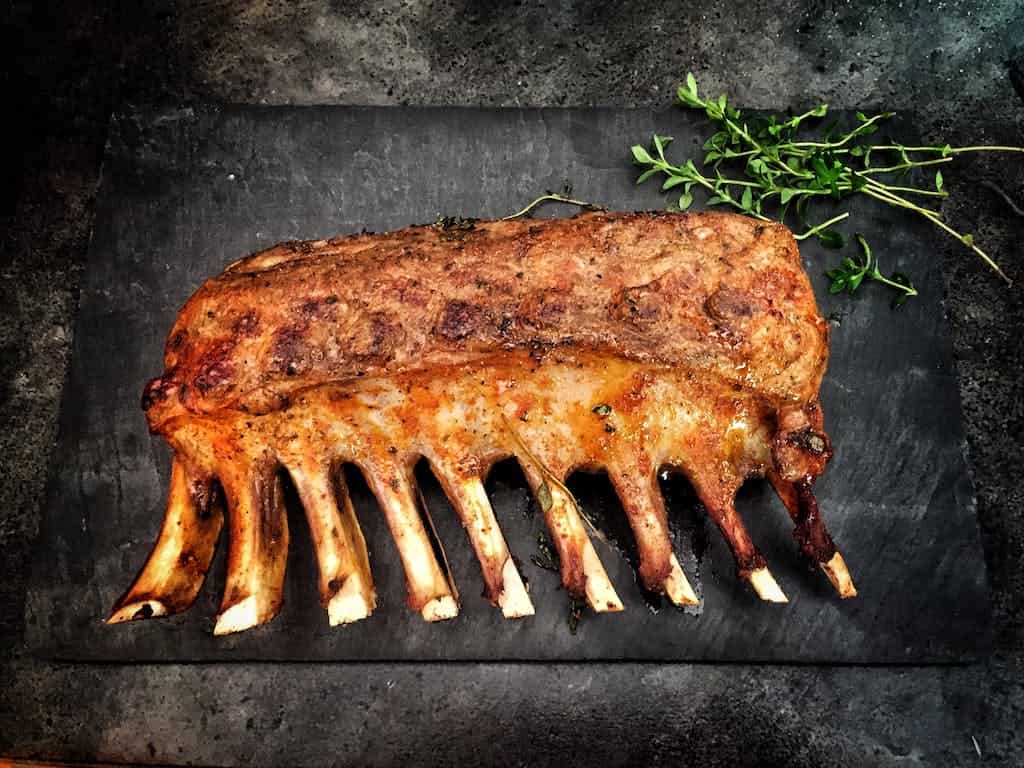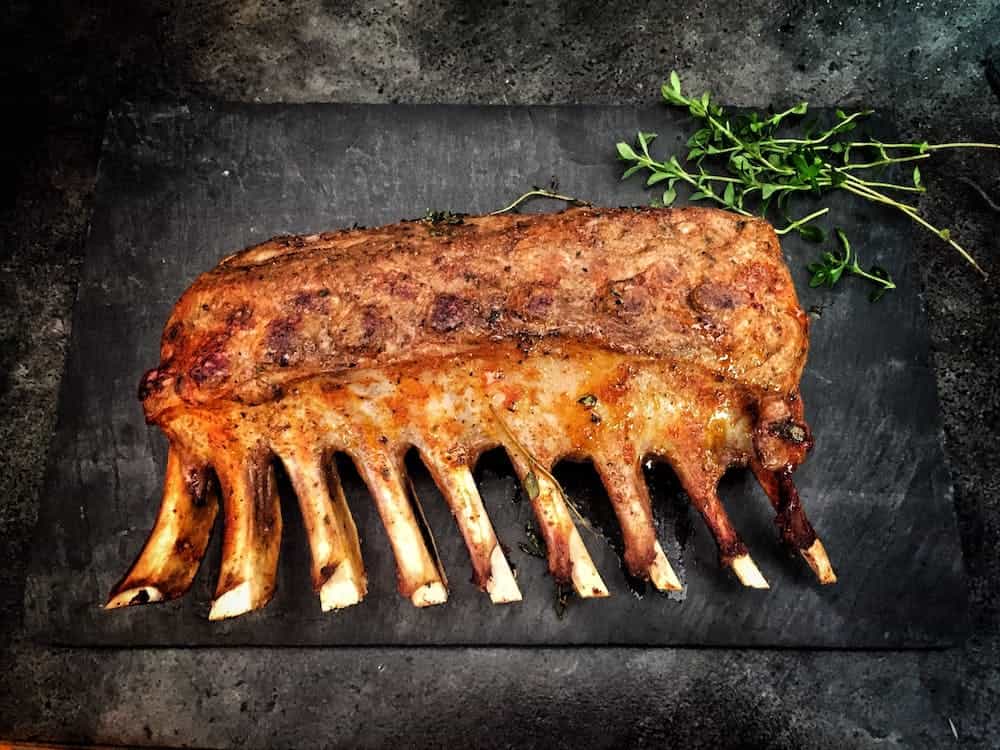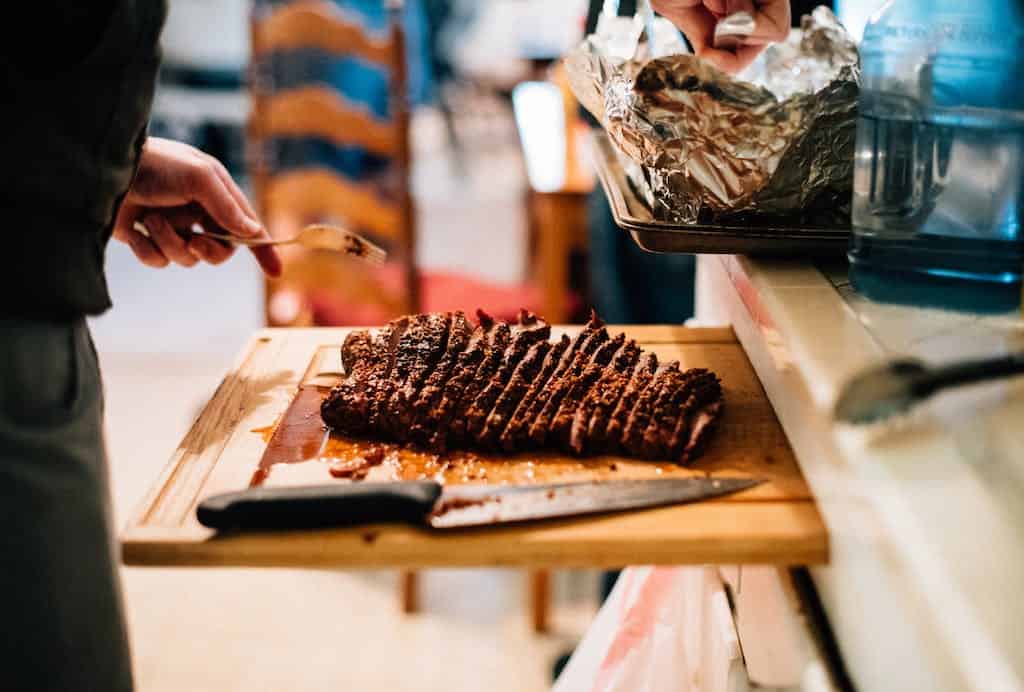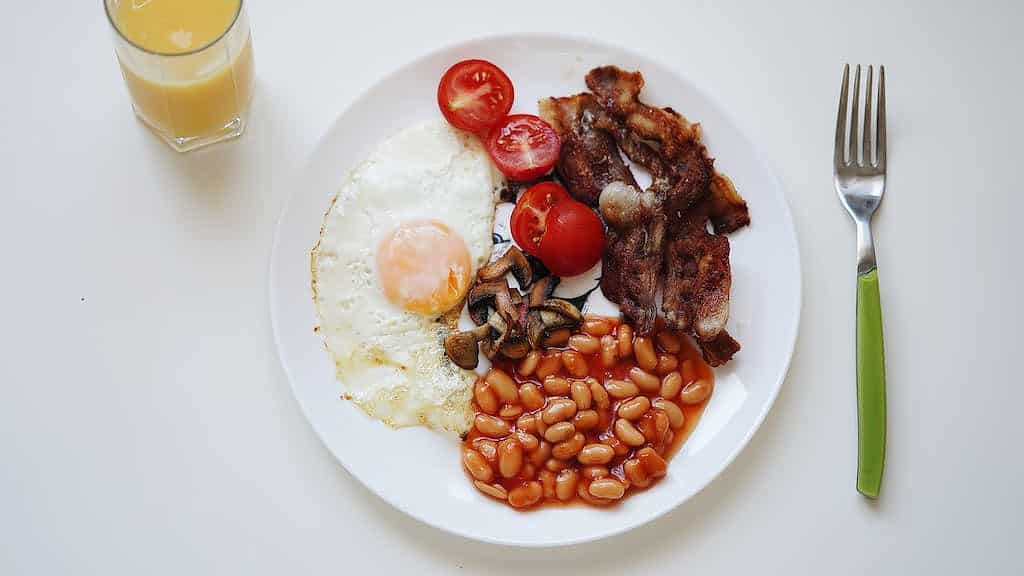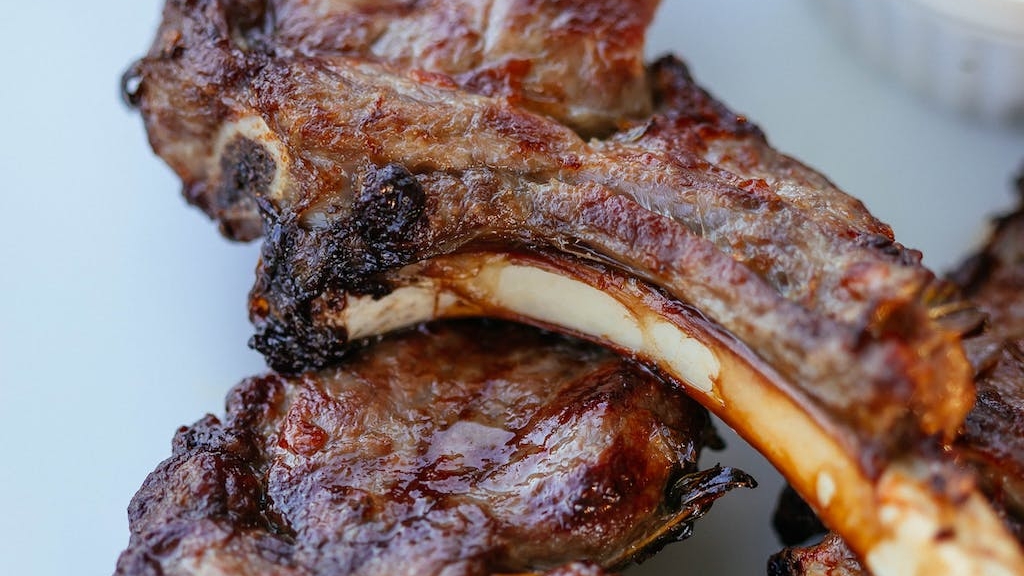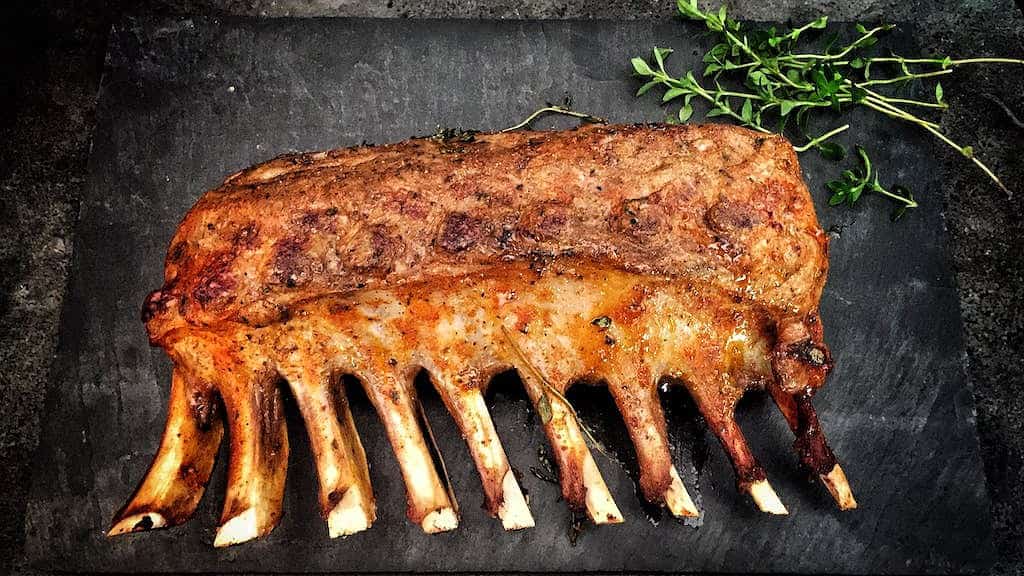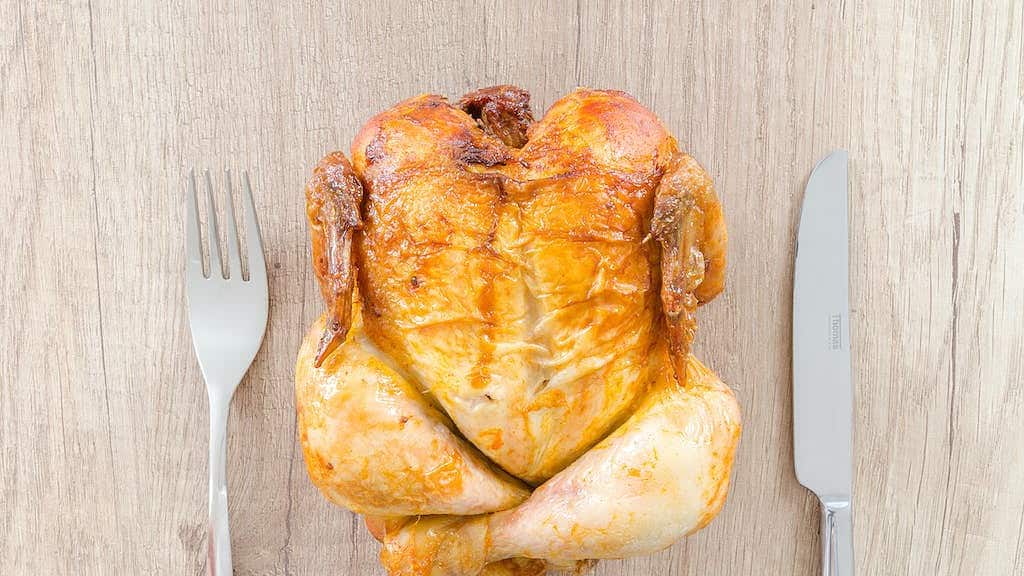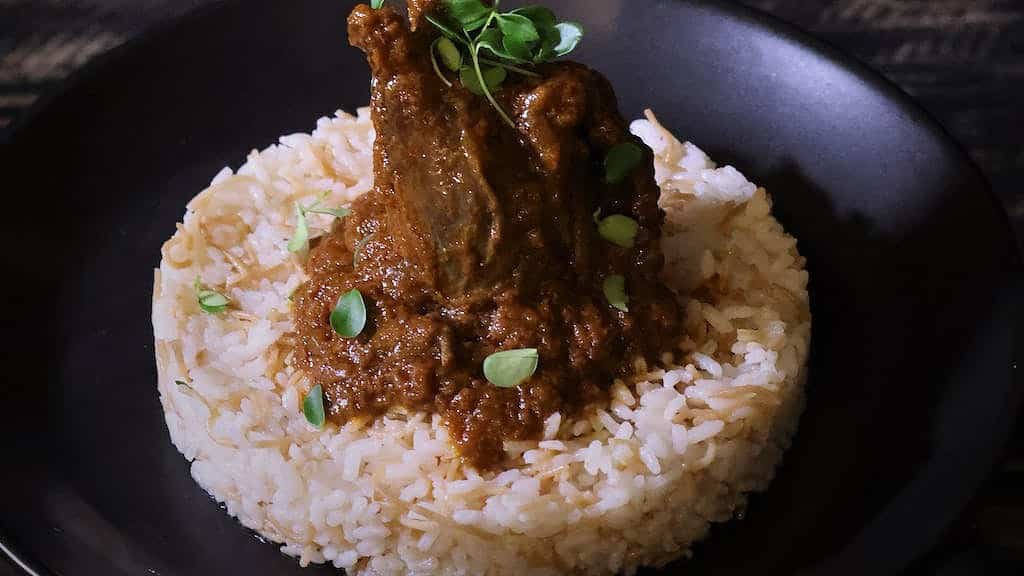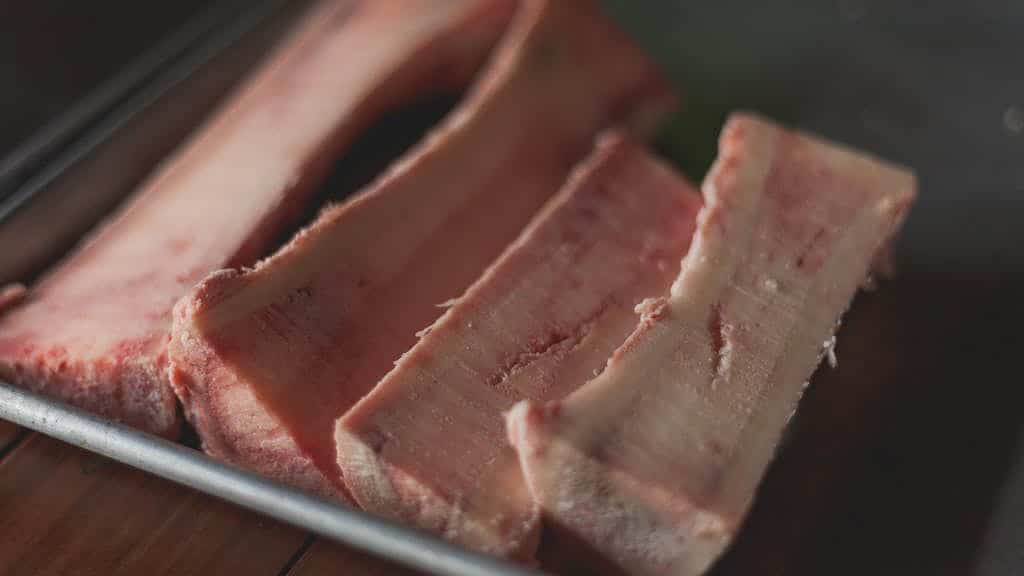Key Takeaways
- Dogs can eat cooked pork ribs in moderation.
- Ensure the ribs are plain, without any seasoning or sauces that may be harmful to dogs.
- Remove any bones or fragments before feeding cooked pork ribs to your dog.
- Pork ribs should be given as an occasional treat, not as a regular part of a dog’s diet.
- Monitor your dog for any signs of digestive upset or adverse reactions after eating pork ribs.
- Consult with your veterinarian before introducing cooked pork ribs into your dog’s diet, especially if your dog has any underlying health conditions.
- Always prioritize your dog’s safety and well-being when offering any new food items.
Summary
Curious about feeding your furry friend cooked pork ribs? Yes, dogs can eat them, but with caution. Before sharing this indulgence, it’s crucial to be aware of potential risks and necessary precautions. This article delves into the specifics of feeding cooked pork ribs to dogs, exploring the potential hazards, health benefits, and recommended portions. Understanding these factors will ensure that you can responsibly treat your canine companion without compromising their well-being. So, let’s delve deeper to equip yourself with the knowledge to make informed decisions regarding your dog’s diet.

Can Dogs Eat Cooked Pork Ribs?
1. Potential Risks of Feeding Dogs Pork Ribs
While dogs love the taste of cooked pork ribs, it’s important to be aware of the potential risks involved. Cooked pork ribs can pose various dangers to dogs, such as splintered bones that can cause choking, blockages, or internal injuries. Additionally, the seasoning and marinades used in cooking pork ribs may contain ingredients that are harmful to dogs, such as garlic, onions, or high levels of salt, leading to various health issues.
2. Health Benefits of Pork Ribs for Dogs
Despite the risks, cooked pork ribs can provide some nutritional benefits to dogs when given in moderation. Pork is a good source of protein, vitamins B6 and B12, zinc, and selenium, which contribute to a healthy immune system, muscle development, and overall well-being. However, it’s essential to remove any bones, fat, and seasoning before offering cooked pork ribs to your dog.
3. Precautions When Feeding Dogs Pork Ribs
If you decide to give your dog cooked pork ribs, take certain precautions to ensure their safety and well-being. Stick to plain, unseasoned, and boneless pork ribs. Cook the pork thoroughly to eliminate bacteria or parasites that may be harmful to dogs. Remove excess fat and trimmings as they can lead to digestive issues. Always supervise your dog while they’re enjoying their treat to prevent any choking hazards or accidents.
4. Alternative Bone Options for Dogs
If you’re concerned about the risks associated with feeding dogs pork ribs, there are safer alternatives to consider. Raw bones specifically designed for dogs, such as raw beef or lamb bones, can be a safer option for satisfying your dog’s chewing instinct. It’s important to consult with a veterinarian to determine the appropriate size and type of bones for your individual dog’s needs.
5. Signs of Pork Rib Induced Problems in Dogs
It’s crucial to be vigilant for any signs of problems if your dog has eaten cooked pork ribs. Common symptoms of pork rib-induced issues include choking, vomiting, diarrhea, abdominal pain, constipation, lethargy, or difficulty breathing. If any of these symptoms occur, immediately contact your veterinarian for advice and guidance.
6. Safe and Healthy Alternatives to Cooked Pork Ribs
If you’re looking for safe and healthy alternatives to cooked pork ribs, consider feeding your dog boneless chicken, lean cuts of beef or turkey, or commercially available dog-safe chews. These options provide a tasty and nutritious way to engage your dog’s chewing behavior without the potential risks associated with cooked pork ribs.
Recipes and Alternatives to cooked pork ribs for dogs
While cooked pork ribs may be a delicious treat for humans, they are not recommended for dogs. Pork ribs can be difficult for dogs to digest and may pose a choking hazard or cause gastrointestinal issues. It’s important to prioritize your dog’s health and provide them with safe and nutritious alternatives. Here are some dog-friendly foods you can consider:
- Lean cuts of cooked chicken or turkey
- Boiled or baked plain boneless fish
- Steamed or boiled vegetables like carrots, green beans, or sweet potatoes
- Plain cooked rice or pasta
- Small amounts of plain yogurt or cottage cheese
Can Dogs Eat Cooked Pork Ribs? – FAQ
1. Are pork ribs safe for dogs to consume?
While cooked pork ribs may seem like a delicious treat for your furry friend, it is generally advised to avoid feeding them to dogs. Pork ribs can pose several risks to your dog’s health.
2. What are the potential dangers of feeding pork ribs to dogs?
Pork ribs, especially when cooked, can be harmful to dogs due to various reasons:
- They are often seasoned with spices, herbs, or sauces that may contain ingredients toxic to dogs, such as onion or garlic.
- The bones can splinter or break, leading to choking hazards, mouth or throat injuries, or intestinal blockages.
- Pork ribs are typically high in fat and can cause digestive upset, pancreatitis, or obesity if regularly consumed by dogs.
3. Can dogs consume any part of the pork ribs?
No part of the pork ribs is considered completely safe for dogs. The bones, in particular, should never be given to dogs as they can cause serious harm.
4. What should I do if my dog accidentally eats cooked pork ribs?
If your dog has eaten a small amount of cooked pork ribs without any harmful seasoning or bones, it may not cause immediate harm. However, it is still recommended to monitor your dog closely for any signs of unusual behavior, gastrointestinal distress, or discomfort. If any symptoms arise, contact your veterinarian.
5. What are some safe alternatives to pork ribs for my dog?
There are plenty of safe and enjoyable alternatives for your dog to indulge in instead of pork ribs:
- Lean cuts of cooked chicken or turkey without seasoning.
- Plain, well-cooked boneless fish such as salmon or cod.
- Dog-friendly fruits and vegetables like carrots, cucumbers, or apples as occasional treats.
- Commercially-prepared dog treats specifically formulated for canine consumption.
6. Can dogs ever eat pork ribs?
In very rare cases, under specific circumstances, some dogs may be able to consume small amounts of plain, unseasoned, and well-cooked pork ribs without experiencing any immediate adverse effects. However, this is not recommended due to the potential risks involved.
7. How can I ensure my dog’s overall well-being?
To provide a healthy diet for your dog, it is crucial to consult with your veterinarian regarding their specific dietary needs. They can recommend suitable food options and provide guidance on appropriate treats and occasional indulgences.
Always prioritize your dog’s safety and well-being by focusing on a balanced and nutritionally complete diet that meets their unique requirements.
Conclusion
While dogs can eat cooked pork ribs, it is important to do so in moderation and with caution. Pork ribs can be a tasty treat for dogs, but they should never be given bones that are small or have been cooked. Cooked pork ribs can easily splinter and pose a choking hazard or cause damage to the dog’s digestive system. It is always recommended to remove all bones before feeding pork ribs to your furry friend. Additionally, pork ribs are high in fat and can lead to obesity or pancreatitis if fed in excess. As with any new food, it is crucial to introduce cooked pork ribs gradually and monitor your dog for any adverse reactions. If in doubt, consult with your veterinarian for specific dietary advice for your dog.
📚 Sources:
